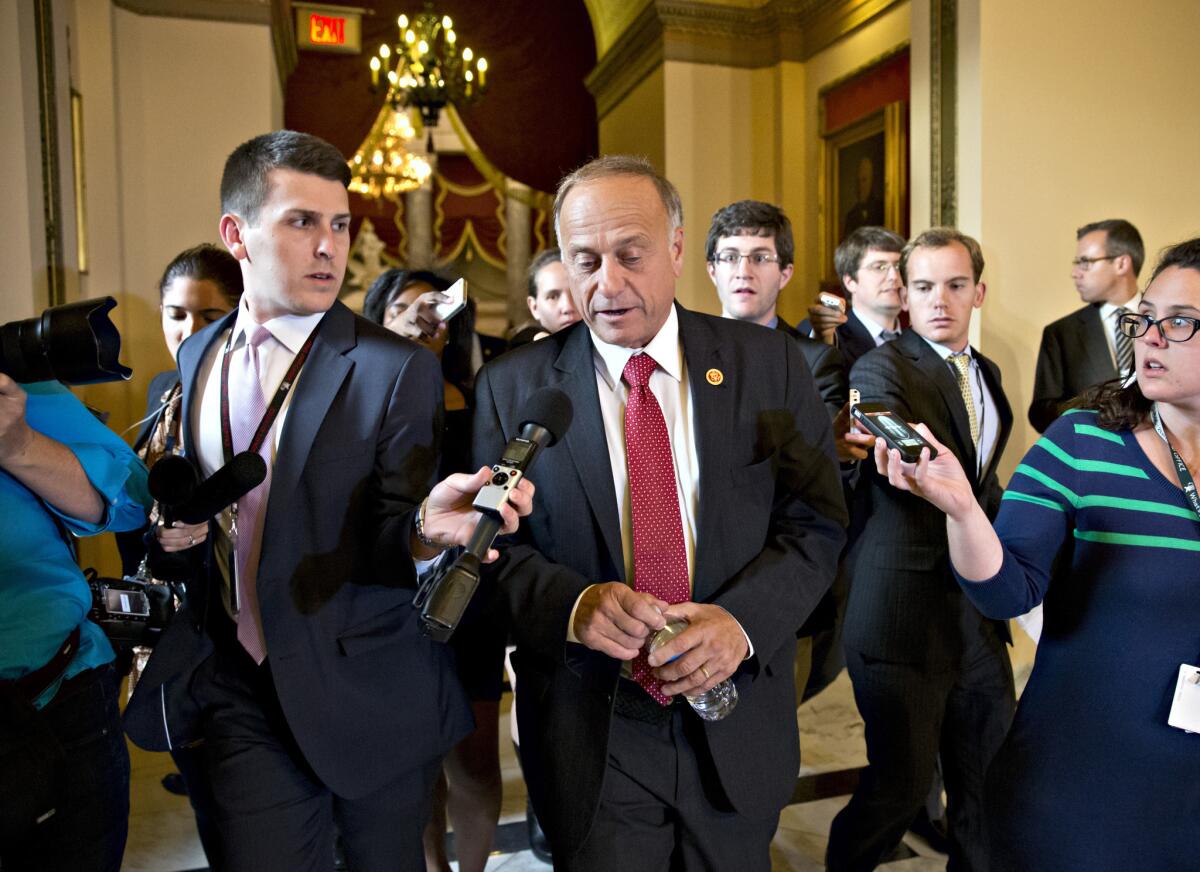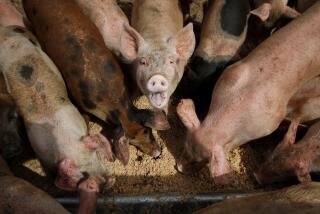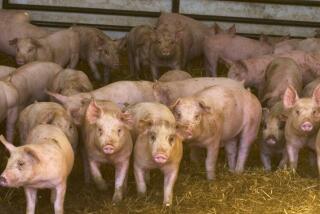Iowa Rep. Steve King lays an egg on the farm bill

Chickens and eggs have provoked a controversy in Congress over what comes first, interstate commerce rules or state laws. According to Rep. Steve King, a Republican from Iowa (the nation’s largest egg-producing state), California’s new law requiring that all eggs sold in the state come from chickens kept in non-confining cages violates the interstate commerce clause of the Constitution.
In response, King persuaded his colleagues to pass the Protect Interstate Commerce Act (also known as the King amendment) as part of the House version of the U.S. farm bill. It prohibits states from enacting any laws that set standards for agricultural production that exceed those in other states governing the same production. But the amendment is misguided and overly broad, and it does far more than release egg farmers in one state from having to follow the stricter rules of another state in which they do business. Animal welfare advocates, state legislators and some legal experts say it will also invalidate hundreds of state laws on animal protection, food safety and even labor welfare. Many of these laws have been on the books for years, their constitutionality accepted and unchallenged. Or, if they have been challenged, they have survived.
In a recent radio interview, King dismissed all the hand-wringing about his bill, saying it is designed to target the California legislation. He added that he could not “identify unintended consequences.” Well, a lot of other people can. State laws requiring labeling of farm-raised fish could be struck down, critics say. So could various state bans on the use of certain dangerous pesticides on produce, Maryland’s ban on arsenic in poultry feed and restrictions that some states have passed to protect against invasive pests. Opponents of the King amendment say it could also affect California’s prohibition on the sale of foie gras made by force-feeding ducks and geese — a law that has already been challenged in court and found to be constitutional.
Ideally, laws that sensibly protect farm animals, consumers of agricultural products and the people who work in these industries would all be federal laws, uniformly governing all 50 states. But it hasn’t worked out that way. States have put in place health and welfare laws that set reasonable, up-to-date standards when the federal government has lagged behind.
The Senate version of the farm bill does not include this amendment. As House and Senate conferees reconcile the bill, they should throw out the King amendment.
More to Read
A cure for the common opinion
Get thought-provoking perspectives with our weekly newsletter.
You may occasionally receive promotional content from the Los Angeles Times.










